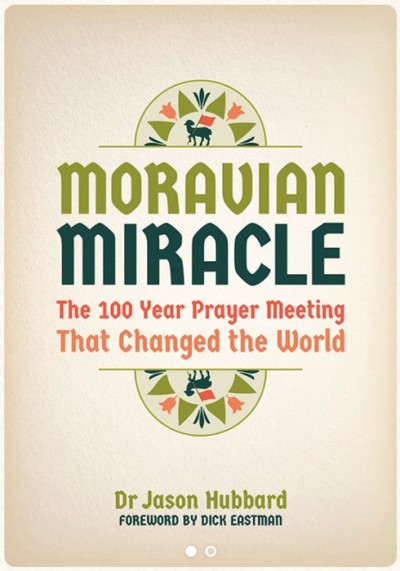Disciple Keys - Movement Prayer Guide
19 Aug 2022Join many thousands of followers of Jesus around the world in praying for global Church Planting and Disciple Making movements using Disciple Keys!
Across each week of the year, we are taking you on an inspiring and challenging worldwide journey of discovery as you are introduced to many of the people groups who have not yet heard the Gospel message. They represent billions of people.
Disciple Keys is ideal for use at home, in church, school, college or within a prayer or mission organization. It has been written and published by 24:14 Coalition and Finishing the Task along with several other partner organizations.
Disciple Keys is available online, as a PDF download, Podcast, e-book and hard/soft cover printed copy
Be equipped, with keys to be a disciple maker!
Download, Listen, Find out more at www.disciplekeys.world
The Prayer Covenant Children’s Mobile App
19 Aug 2022We are excited to announce that The Prayer Covenant Children’s mobile app is now available to download!
Ten new animations, which bring each Bible story vividly to life, are included in each lesson along with fun activities and raps that invite the player to sing along. The Lost Sheep animation from the theme, Grace, recently won a Gold Davey Award!
My Story contains testimonies of children from various countries sharing how The Prayer Covenant is changing them. It’s also a chance for kids to share their stories.
Play contains interactive, reward-based activities to motivate children to learn all ten of The Prayer Covenant themes (Grace, Love, Compassion, Repentance, Worship, Commitment, Dependence, Influence, Discipleship, and Authority). The activities begin with the first theme and the rest unlock one by one as they are completed, working their way through the tenth lesson on Authority.
This interactive app will help us reach children on a much larger scale, and we are praying it will encourage them to grow deeper in their relationship with Jesus.
The app is available to download on Apple and Android devices. Try it out and share it with the children in your life, and make sure to leave a review!
More info and download links: theprayercovenant.org/mobileapp/
He Hears Her Voice - Candy Marballi
19 Aug 2022“Teach us to pray,” was the humble request of Jesus’ disciples over two thousand years ago and remains the heart cry of many of His followers today.
Declaring the promises of God through prayer can lead to untold blessings and opportunities.
Candy Marballi’s newly released book, He Hears Her Voice, is a prayer strategy that offers proven steps to guide you to a richer and deeper relationship with God.
One prayer comprised of ten unshakable truths (grace, love, compassion, repentance, worship, commitment, dependence, influence, discipleship, and authority) will empower your prayer life.
Through vivid personal stories, meditative Scripture, beautiful hymns, and meaningful prayers, this devotional provides a grounding worship experience.
He Hears Her Voice will equip a generation of women to live out their faith in ever-growing intimacy with the God who loves them so completely.
Wonderful for gift giving, this book can be purchased through major book retailers including Amazon and Barnes and Noble. Be sure to leave a review!
Every book you purchase will impact a child in Africa.
Moravian Miracle - Dr Jason Hubbard
19 Aug 2022The Moravians changed the world
By God’s grace, we will too.
The prayers of humble believers change the course of history. A band of ragtag worshippers discovered this truth in 18th-century rural Germany, launching a 100-year prayer meeting that birthed the modern missionary movement. Often overlooked, the story of the Moravians comes to life in this incisive, devotional account. Moravian Miracle will fix your gaze on the glorious, conquering Lamb who is now gathering his church for one final prayer-saturated harvest of souls.
Moravian Miracle is written by Dr Jason Hubbard - Director of International Prayer Connect.
WHAT OTHERS ARE SAYING:
“Fascinating and deeply motivating.”
- Rick Warren, The Purpose Driven Life
“A true gift to the global body of Christ.”
- Mike Bickle, International House of Prayer
ORDER NOW ON AMAZON!
Price: US$12 | AU$18 + Postage
See Amazon for local pricing
Non-Amazon Country Orders...
If Moravian Miracle isn’t available to your country from Amazon, Click here to add your info to our list, and we will be in contact with you as soon as Moravian Miracle is available in your nation!
More info, order links and resources at www.moravianmiracle.org
We are pleased to bring you this August 2022 edition of IPC Connections.
Welcome to our new subscribers from the recent World Prayer Assembly 2 and the SAPC Consultation! We trust that you will find this monthly update to be informative and useful.
For readers who are new to this publication, IPC, aka International Prayer Connect is a coalition of 5,000+ Christian prayer networks and organizations who share a common vision -
‘Exalting Jesus, catalysing united prayer across nations, denominations, movements, and generations for the fulfilment of the Great Commission.’
We welcome your partnership in prayer and mission!
The World Prayer Assembly was an incredible event, bringing together more than half a million believers across Indonesia and in 100+ countries, in person and online. Our media team have made the plenary sessions and regional gatherings from WPA2 freely available at www.worldprayerassembly.org Please do share these informative and useful resources!
Do watch Tom Victor’s video entitled Kegerakan Doa (Prayer Movement), captured by Daniel Pandji’s team, which expresses the value, respect and appreciation that he and the IPC family place on the important role of the Indonesian Church and Prayer Movement. We are so grateful both for their partnership in the WPA vision, but also in building regional collaboration and the mobilization of prayer and mission initiatives.
Indonesia are partnering with the Korean churches to raise up 30,000 missionaries to be sent to the Middle East nations! We will cover this more in next month’s edition.
I was honored to join representatives of South Asian countries and states along with several keynote international speakers for the South Asia Prayer Consultation in July. This gathering marked the formation of the South Asia Prayer Council – a regional grouping, who are affiliated to IPC, under the directorship of Onassis Jeevaraj and a newly formed steering group. Read the full report below. See the new online SAPC resource.
Many of us are taking part in 90 Days of Hope, which encourages us to pray, care and share daily our stories of HOPE and new life in Jesus. It culminates in the Global Day of Hope on Saturday 27th August. The broadcast will be put out in multiple languages and can be viewed at www.globaldayofhope.com
Thank you for continuing to partner with us in mobilising and informing united prayer across nations, denominations, movements, and generations for the fulfilment of the Great Commission.
We would welcome financial gifts of any size towards our vision and mission, whether one off or regular. There are some guidelines as to how to give here: www.ipcprayer.org/give
May we express grateful thanks to Andy Page and the IPC Editorial Team who put this email together each month.
Every blessing,
Jason Hubbard - Director
International Prayer Connect
Please use this link if you would like to sow into IPC’s ministry with a donation.
Disclaimer… The views and opinions expressed in IPC Connections and the articles on our website are those of individuals and our partner organisations. They do not necessarily represent the policies or views of IPC or its individual leaders.
We aim to respect the diversity within the prayer movement and yet embrace our unified calling to mobilise prayer for the nations. (2 Chron 7:14) If you wish to discuss the appropriateness of any articles, please contact us. If for any reason you do not wish to receive IPC emails in future, please click the unsubscribe link below.
PASSOVER TO PENTECOST: COME TO THE TABLE 2022 REPORT
INTRODUCTION
What an amazing time this year to celebrate this season of Passover to Pentecost 2022!
This was our 3rd annual collaboration, experiencing together the convergence of many of the global prayer and mission’s movements! I want to say thank you to each of you who participated this year.
It has been an incredible journey together and I am so proud of each of you, and love you with all of my heart. Not only was our theme this year called Come to the Table, I believe we did this together. We came together around the common vision to Behold the Lamb, honoring the table of the Lord, remembering and giving thanks for the body and blood of the Lamb. In the words of Lou Engle, we participated in a global communion revival. We sat down together as family from many nations, denominations, and generations around the table, getting to know one another, walk together, honor one another above ourselves and love one another. It is so clear that part of loving one another is seeing our Need for one another.
In order to fulfil the great commission in our generation, we need every part of the body functioning together as one in order to achieve this massive task! When we all work together it is astounding to see the results.
 As we came together, millions of hours of worship, prayer and intercession rose up before the Lord like incense as we cried out to the Lord on behalf of the salvation of multitudes in the nations. We desperately asked the Lord of the Harvest to hurl forth laborers to the remaining unreached people groups, asking every believer to be a witness. We prayed for an increased number of churches to be planted in 24 of the most unreached Muslim cities in the world. This resulted in millions coming to Christ, and thousands of churches being planted around the world, all for the Glory of the Lamb!
As we came together, millions of hours of worship, prayer and intercession rose up before the Lord like incense as we cried out to the Lord on behalf of the salvation of multitudes in the nations. We desperately asked the Lord of the Harvest to hurl forth laborers to the remaining unreached people groups, asking every believer to be a witness. We prayed for an increased number of churches to be planted in 24 of the most unreached Muslim cities in the world. This resulted in millions coming to Christ, and thousands of churches being planted around the world, all for the Glory of the Lamb!
In the end, we give Jesus all the credit. He is the one Leading Us! Ultimately in order to have God’s blessings, God’s work must be done God’s way. And JESUS himself IS the work, the way and the blessings we need.
He must have the SUPREMACY, the predominance, pre-eminence, central focus, exaltation, visibility, and raison d’etre! As David Bryant writes, “both individually and corporately, we must be committed to pursuing together MORE of who God’s Son is TO us, FOR us, OVER us, BEFORE us, WITHIN us, THROUGH us and UPON us!
ALL of our dreams, visions, and ambitions -- all of our strategies, and missions’ endeavor, all of our active prayer and mission outreaches, and collaborations in missions advances -- are NOTHING without HIM! For from him and through him and to him and for him and by him are ALL things. HE must become the center and the circumference -- the integrating reference point -- within whom we meet and plan and act -- about anything, loving him, submitting to him, and listening to him! We must measure and validate what we think we are hearing from him and doing for him by the standard - how fully did what we do make MUCH of him?
It all belongs to him! Because of his sacrifice at the cross, we declare with the 24 elders and the 4 living creatures, Worthy is the Lamb who was slain, to receive power and wealth and wisdom and might and honor and glory and blessing!” (Rev 5:12).
GLOBAL REPORT
 Global Jesus Fast – Thousands of believers around the world participated in a 40 day Daniel Fast, with a focus on ‘Beholding the Lamb,’ and praying in agreement for a mighty harvest of souls in the nations, including the salvation of unbelieving jews around the world!
Global Jesus Fast – Thousands of believers around the world participated in a 40 day Daniel Fast, with a focus on ‘Beholding the Lamb,’ and praying in agreement for a mighty harvest of souls in the nations, including the salvation of unbelieving jews around the world!
This culminated with a special gathering at Christ Church in Jerusalem, 4/18/2022, celebrating in a global communion service with believing Jews, Arabs, Egyptians and the nations (online).
 One Miracle Night - During Ramadan we saw 43,000hrs of committed prayer (people committing to 15 minutes of day with specific Bible-based prayer points on behalf of unreached Muslims peoples and cities throughout the Middle East.
One Miracle Night - During Ramadan we saw 43,000hrs of committed prayer (people committing to 15 minutes of day with specific Bible-based prayer points on behalf of unreached Muslims peoples and cities throughout the Middle East.
We culminated this time praying for 24 of the most unreached cities on the Muslim night of power which we called One Miracle Night.
The RUN family joined together with the Jesus Film global leadership team and partners, IPC and hosted by the Global Family 24/7 Prayer Room and together we saw 50 million hours of prayer offered, praying for Christ to be exalted amongst these peoples and gospel movements throughout the Middle East!
 May 1st Go Pray - We launched a global prayer broadcast through God-TV calling the nations to pray for evangelism and church planting during the month of May (Go Movement)!
May 1st Go Pray - We launched a global prayer broadcast through God-TV calling the nations to pray for evangelism and church planting during the month of May (Go Movement)!
May 14th Awaken the Dawn and The Send - 5,000 people gathered in six tents in a field in Kansas City for a week of day & night worship, prayer and evangelism. The week of ATD Kansas City was preceding The Send in Arrowhead Stadium on that Saturday, where 50,000 gathered to pray and be activated into their missional calling.
Awaken the Dawn collaborated with International House of Prayer and The Send to host the week-long flood of worship, prayer and outreach. Five tents hosted 24/7 worship & prayer with musicians, singers & intercessors from across the USA and other nations. Every afternoon, over 1,000 evangelists flooded the city with God’s love - sharing the Gospel, feeding the hungry, cleaning up neighborhoods and more. Over 450 people gave their lives to Jesus! There were also a number of physical healings at the tents and on the streets.
 World Prayer Assembly 2.0 - 500,000 from 101 nations gathered virtually in watch parties to pray for a New wave of the Knowledge of the Glory of the Lamb to cover the earth as the waters cover the sea (Hab. 2:14). We shared together in a special time of communion at the Lord’s table and came together as family from different regions of the world. The Indonesia’s followed this with up adopting 100 of the remaining unreached frontier people groups around the world and prayer walked 257 Indonesian cities on June 27th!
World Prayer Assembly 2.0 - 500,000 from 101 nations gathered virtually in watch parties to pray for a New wave of the Knowledge of the Glory of the Lamb to cover the earth as the waters cover the sea (Hab. 2:14). We shared together in a special time of communion at the Lord’s table and came together as family from different regions of the world. The Indonesia’s followed this with up adopting 100 of the remaining unreached frontier people groups around the world and prayer walked 257 Indonesian cities on June 27th!
10 Days of Prayer - 25,000 hours of prayer were logged in on the global family prayer room this Spring with a concentrated time called 10 days, leading up to Pentecost. This also included 200 plus 24/7 around the clock prayer groups from Jericho walls throughout SA and expanded this year to 16 other nations throughout Africa.
 GO Month Report – With the vision, “Every believer a witness: Everyone can reach Someone and Together we can reach the World for Christ,” over 50 million people came to Christ during the month of month. Many of the world largest denominations participated together this year including the Assembly of God and the Baptist world, with a strong emphasis and focus this year in Africa! Over 500 people were water baptized in one location in Chad!
GO Month Report – With the vision, “Every believer a witness: Everyone can reach Someone and Together we can reach the World for Christ,” over 50 million people came to Christ during the month of month. Many of the world largest denominations participated together this year including the Assembly of God and the Baptist world, with a strong emphasis and focus this year in Africa! Over 500 people were water baptized in one location in Chad!
Global Church Planting Day – In Africa, 1,672 churches and groups started, and over 22,000 were trained in church planting.
Pentecost Broadcast – On June 5th thousands joined from around the world to watch the Pentecost
Broadcast called Come to the Table. Hosted by Global Voice of Prayer (former Global Day of Prayer),
partnering together with the global prayer movements to hear the inspiring stories of the growth of the prayer and mission’s movements in the last several decades. The 1hr broadcast culminated with a special time of communion, ‘at the Lord’s table!
More Info: www.cometothetable.world | Download and Print this report with links (PDF)

A SUMMARY REPORT ON THE SOUTH ASIA PRAYER CONSULTATION 2022 - Chennai, India which was the founding gathering of the new South Asia Prayer Council.
The Purpose...
The South Asia Prayer Council Prayer Consultation was an initiative by international Prayer Connect which was held in Chennai from 18th to 21st July-22.
This prayer consultation was the response to the global and regional challenges which are constantly leaving people and the countries in a fragmented state. In addition to this each one of the nations in South Asia is going through extreme challenges to preach the Gospel.
South Asia prayer Council decided to call upon the key leaders from each of the countries to represent their nations and engage in this powerful prayer movement in order to demolish the strongholds, break all barriers and pave the way for the Gospel.
 Main Focus of this Consultation...
Main Focus of this Consultation...
To build up and mobilize a strong Canopy of Prayer in the South Asia region.
To raise prayers / Prayer Walks in 22 Major unreached cities in the region.
To mobilize every believer in South Asia to Pray for the unbelievers.
To release every believer to share the Gospel with their friends and in their sphere of influence.
Theme Verse:
“Your ancient ruins shall be rebuilt; you shall raise up the foundations of many generations; you shall be called the repairer of the breach.” Isaiah 58:12
Key Words Emphasised:
Collaboration | Engaging | Partnering | Intercession |
Empowering | Building | Responsibility | Praying
Keynote Speakers
- Dr Jason Hubbard - Director of International Prayer Connect (IPC)
- Rev David Mohan - Senior Pastor and Founder of the New Life Assembly of God, Chennai, India
- Brother Brian Alarid - CEO of America Prays and the Chairman of Pray for All
- Brother Dean Briggs - Author, teacher, speaker, dreamer and consultant.
- Brother Onassis Jeevaraj - Founder and Director of Nehemiah Mission, Executive Team Member of International Prayer Connect & National Director for GO Movement .
- Brother Werner Nachtigal - Founder and Director of GO Movement, based in Berlin, Germany. He is an evangelist with a calling to mobilize and equip every believer to witness and reach the world together
- Pastor Michael D - Senior Pastor of a large Pentecostal network of Churches
- Rev Simon Ponniah - One of the renowned mission leader in the country in India. He has a wealth of knowledge on raising missionaries to the unreached, unengaged people groups in the nation.
- Brother David Raj - Founder & Principal Consultant in SHEFA ministries. He develops ministry Blueprint and strategy documents for Churches and Christian Organisation. His vision is to see every believer is transformed to be a powerful active disciple.
 The total number of Churches overseen by the total number of participants is 25,313.
The total number of Churches overseen by the total number of participants is 25,313.
The denominations that represented in the conference are Assemblies of God, Charismatic, Independent, Evangelical, Full Gospel, Four Square and Pentecostal.
Main line churches included Church of North India, Methodist, Baptist, and Roman Catholic.
Participant Commitment Overview
GOAL 1: To mobilize every believer in South Asia to pray and share with 5 unbelievers
A total of 275,867 has been committed as target to mobilize believers.
A total of 1,389,746 unbelievers will be reached
GOAL 2: To build up and mobilize a strong canopy of prayer in South Asia Region
Analysis – To start and strengthen 892 prayer cells
 GOAL 3: To raise prayer/prayer walks in major unreached cities in the country
GOAL 3: To raise prayer/prayer walks in major unreached cities in the country
48% committed to raise prayer or prayer walks monthly
20% committed to raise prayer or prayer walks quarterly
27% committed to raise prayer or prayer walks weekly
5% said annually or did not respond.
The target set of people to join prayer walks is 11,185.
GOAL 4: Prayer will result in active Gospel teams in each Church resulting in Church growth
Out of the 100 respondents
49% committed to sending gospel teams on a weekly basis
41% on a monthly basis
6% on a daily basis and
4% did not respond
The target of gospel teams is 46,242. These teams will aim at adding 12,027 new converts into the Church through their efforts.
Delegate Feedback & Testimonials
‘Really a very purposeful and right on spot Council. Finishing the Great commission with prayer and evangelism.’
 ‘The SAPC 2022 meeting was a great encouragement and the message strengthened us when we were down in spirit’
‘The SAPC 2022 meeting was a great encouragement and the message strengthened us when we were down in spirit’
‘The testimonies that were shared motivated us to do more without fear’
‘The acoustic way of the word "BLESS" deeply touched us and is very clear to remember and apply in day-to-day life’
‘We are already doing some of the things God told us to but we were unsure and questioning ourselves if it was correct. and in the SAPC 2022 prayer meeting, we got confirmations and were more strengthened in spirit’
‘During time of SAPC conference in Channai, God refresh my Soul, Mind, Body and My Vision’
‘I am so blessed to be part of SAPC, it was an enriching experience for me’
 ‘I preached and taught a lot about prayer but I myself had a tough time to spend time in prayer, this meeting really gave me a fresh burden to pray for others more than to self’
‘I preached and taught a lot about prayer but I myself had a tough time to spend time in prayer, this meeting really gave me a fresh burden to pray for others more than to self’
‘If God wills, I had a great desire to host such prayer conference in my nation’
‘Thank so much you Brother Onassis and team especially Leslie, and all who have worked very hard to make this Prayer Movement A Success’
‘Everything was well organised,? well co-ordinated and especially food management. Thank God for such a wonderful team plan out’
‘The value of persistent prayer is not that God will hear us, but that we will finally hear God’
Looking Forward…
In addition to the project goals listed above, the delegates made firm commitments to collaborate and to build on the special unity and shared vision that was birthed during this inaugural gathering. We will update you further in future bulletins!
More info, reports, presentations, videos and regional prayer guides are available on the SAPC website
Brother Onassis Jeevaraj - South Asia Director
International Prayer Connect
Also:
Founder and Director of Nehemiah Mission
National Director for GO Movement
Email: This email address is being protected from spambots. You need JavaScript enabled to view it.
As of 18th August, the total global figure for people infected by Covid-19 stood at 594 million according to Johns Hopkins University. In addition to this, the recorded number who have died totalled 6,446,679.
67.4% of the world population has received at least one dose of a vaccine and 12.47 billion doses have been administered globally. Only 20.3% of people in low-income countries have received at least one dose.
The following table charts the worldwide 7-day average of cases over the course of the pandemic.
Data on a county by country level can be found here.
The head of the World Health Organisation (WHO) remains concerned about what it sees as continuing unacceptably high numbers of deaths from COVID. While many governments of wealthier countries have all but abandoned coronavirus restrictions following successful vaccine rollouts, the organisation's director-general emphasised that the pandemic is "nowhere near over" and that ongoing measures should still be considered.
Dr Tedros Adhanom Ghebreyesus said sub-variants of Omicron continue to drive new waves of cases, hospitalisations and deaths around the world. Amid increasing COVID transmission and rising hospitalisations, Dr Tedros urged governments to "deploy tried and tested measures like masking, improved ventilation and test and treat protocols". "I am concerned that cases of COVID-19 continue to rise - putting further pressure on stretched health systems and health workers," he said. "I am also concerned about the increasing trend of deaths."
Among the variants and subvariants being tracked by the WHO is BA.2.75 - nicknamed the centaurus - which was first discovered in India in May. Additionally, 2 further offshoots of Omicron – BA. 4 and BA.5, are considered to be fuelling a global surge in cases — 30% over the past fortnight, according to the World Health Organization (WHO).
There is an acceptance that the virus is spreading again — evolving, escaping immunity, and driving an uptick in cases and hospitalisations. This is a clear sign that the pandemic is far from over.
Pray:
For divine intervention and for God's name to be glorified even as each nation and government tries its best to vaccinate, prevent or control the emergence of new waves of infection.
For wisdom in government as leaders determine their ongoing responses to COVID, balancing a desire for normality with a need for appropriate protection.
That individuals, leaders and nations continue to focus on the needs of others rather than themselves, and that co-operation and compassion lie at the heart of the world’s response to the crisis.
We continue to release faith, hope, and love over the peoples of the world. May the Church seize this opportune time to manifest Jesus our Lord and Saviour to those who are seeking answers and purpose.







